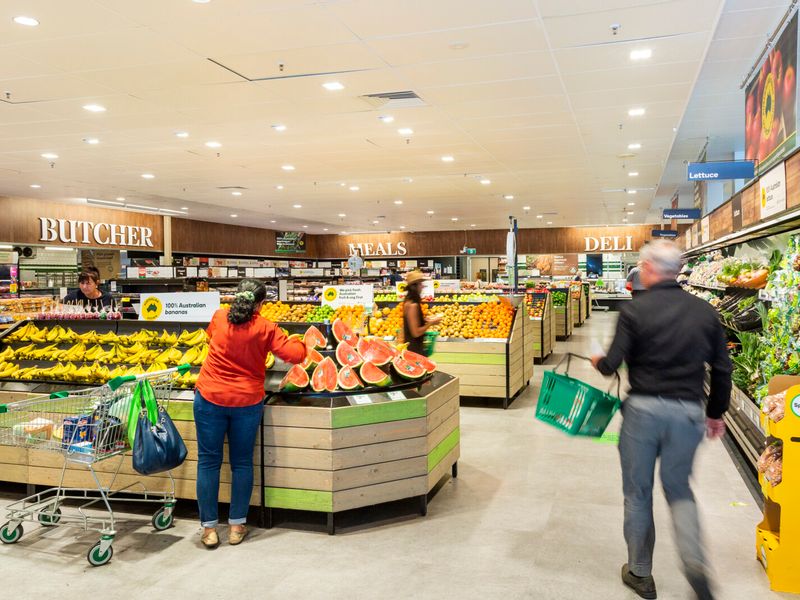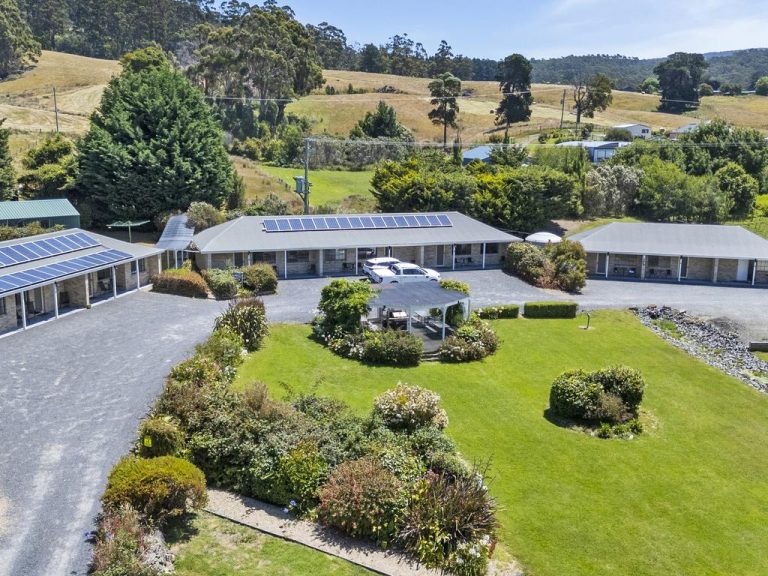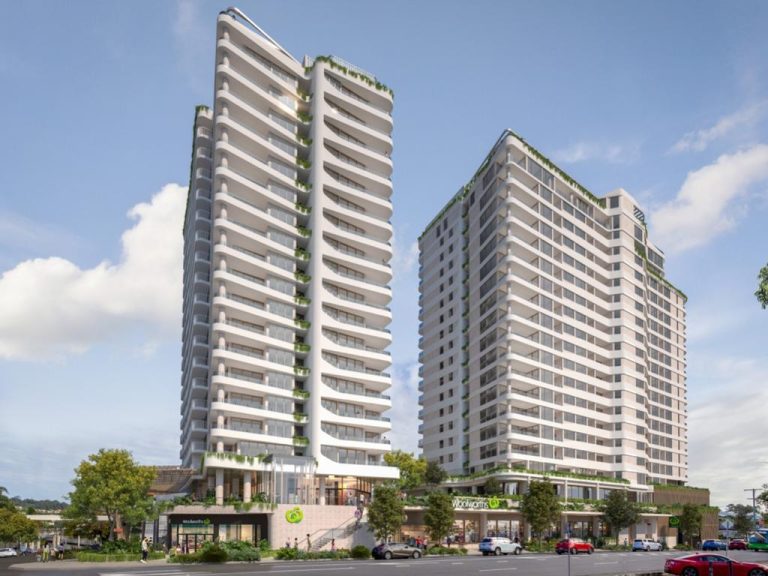Buyers target pandemic-proof retailers as investment rebounds

Essential retailers such as supermarkets are expected to remain high on investors’ shopping lists this year after a rebound in buyer demand for retail assets.
While CBD retailers continue to face tough times, ‘pandemic-proof’ retailers like Coles, Woolworths and Bunnings as well as neighbourhood shopping centres are tipped to again be strong performers.
PropTrack economist Anne Flaherty said investors are increasingly targeting essential and non-discretionary retailers, a trend she expected to continue in 2022.
“Similar to the trends that emerged following the pandemic, the best-performing retail assets are likely to be those tenanted by essential retailers,” she said.
“Retail investors are increasingly looking for assets tenanted by ‘pandemic-proof’ businesses with a lower risk of vacancy.”
Ms Flaherty said while some retailers have struggled, others have thrived as a result of the pandemic.
“The strongest performers have been large format retail, neighbourhood centres and sub-regional centres.
“Tenants like Bunnings or a Coles or Woolworths have become even more attractive in the face of the pandemic, and properties that house these kinds of tenants have performed strongly and seen yields continue compressing.”

Properties leased to Coles, Woolworths and Bunnings have become even more highly prized during the pandemic. Picture: realcommercial.com.au/sold
Ms Flaherty said increased population growth in regional areas during the pandemic is also likely to create opportunities in the regions.
“Already we are seeing an increasing number of businesses searching and enquiring to lease and buy retail property in regional areas on realcommercial.com.au. This is predicted to flow through to an increase in the number of leasing deals and sales in the most in-demand regions.”
In contrast, conditions for city retailers remain tough as the Omicron outbreak delays the recovery of Australia’s CBDs.
“The softening of Australia’s international border to migrants and students will help to support the recovery of our CBDs, but this is likely to be a gradual process rather than a bounce back,” Ms Flaherty said.
“Likewise, office occupancy rates are likely to remain below pre-COVID levels for some time, restricting the recovery in foot traffic.”
Recovery in buyer demand for retail assets
Ms Flaherty said buyer demand has recovered over the past 12 months, after retail sales volumes collapsed to the lowest level in more than a decade following the onset of the pandemic in 2020.
“The past 12 months have seen a significant bounce back, with volumes recovering to the highest level seen since 2015,” she said in the new PropTrack Retail Snapshot 2021.
Contributing to that result, she said, was the largest direct retail transaction ever recorded in Australia – AMP’s acquisition of Dexus’ 25% stake in Sydney’s Macquarie Centre and 20% share in the Gold Coast’s Pacific Fair for a combined $758.9 million.
Real Capital Analytics data recorded a total of $17.6 billion worth of retail sales in 2021.
Ms Flaherty noted Australia is one of the only developed countries to see retail volumes above the pre-COVID average in 2021. Regional retail has been driving the result, she added.
Releasing Colliers’ new Retail Capital Markets Investment Review, Colliers head of retail investment Lachlan MacGillivray noted high-net-worth investors and major superannuation funds have been looking to deploy capital into land or development-rich assets across the retail market.
“The recovery of consumer confidence, and the eagerness of consumers to return to bricks and mortar stores, has continued to support the growing industry while pent-up demand and the ability to spend has supported asset turnover and allowed investors to see upside potential and opportunity,” he said.

Investment in Australian retail assets rebounded in 2021, with sales volumes expected to remain high in 2022. Picture: realcommercial.com.au/for-sale
The Colliers report said sales volumes are expected to remain high in 2022 given the availability of assets on the market, driven by continued investor confidence in the sector and a desire for larger returns compared to the office and industrial sectors.
“Centres with low vacancy and value-add opportunities will continue to be in strong demand. Given the restored interest in the retail sector in 2021, there is scope for slight yield compression over 2022 due to the weight of capital chasing these assets and the widening yield spread to other commercial sectors.”
Increased appetite for large format and neighbourhood centres
Large format retail and neighbourhood shopping centres remain highly sought-after by investors.
Ms Flaherty said the increase in home renovation activity has boosted the performance of homewares and hardware stores such as Bunnings or Harvey Norman.

Investor appetite for Bunnings Warehouses has been growing. Picture: realcommercial.com.au/sold
“Given the successful track record of these businesses throughout COVID, assets tenanted by these kinds of businesses are likely to remain hotly contested by investors in 2022,” she said.
“This will support the performance of the large format sector.
“Increased demand for assets tenanted by essential retailers, such as supermarkets, will also help to support demand for neighbourhood centres.”
In recent neighbourhood shopping centre deals by JLL, Sydney’s Market Plaza Chipping Norton sold for $37.4 million at a 4.75% yield to a private investor after an on-market campaign. The Woolworths-anchored Coolum Park Shopping Centre on the Sunshine Coast sold for $32.5 million off-market.

Sydney’s Market Plaza Chipping Norton recently sold for $37.4 million to a private investor. Picture: realcommercial.com.au/sold
JLL retail investments (Australia) senior director Nick Willis said the convenience and large format retail sectors continued to attract the strongest investor interest given their outperformance over the past 24 months.
Mr Willis said there was broad investor interest from private high-net-worth investors, global pension and sovereign funds and Australian real estate investment trusts.
“Supply of investment product remains a key issue for this part of the retail market, with demand drastically outweighing available supply. This imbalance will continue to drive yield compression and potential for further M&A [mergers and acquisitions] and strategic partnerships in 2022.”
In what Stonebridge Property Group said was the first supermarket sale for 2022, Aldi sold its supermarket in Melbourne’s Mordialloc for an undisclosed price with a 10-year leaseback and additional options.
Stonebridge partner Justin Dowers said buyers from Tasmania, Sydney, Perth and Melbourne plus several overseas groups competed for the asset, attracted to the long-term lease, tenant profile and non-discretionary income.
“Metropolitan supermarkets are extremely rare at present and the fundamentals have never been better,” he said.

The Aldi supermarket in Mordialloc attracted interest from local, interstate and overseas investors. Picture: realcommercial.com.au/for-sale
Stonebridge is now selling a freestanding Coles supermarket in the Melbourne suburb of Lalor, with a new 10-year net lease.
“In the current environment freestanding supermarkets are seen as one of the most secure opportunities, especially those with underlying landholdings,” Mr Dowers said.







